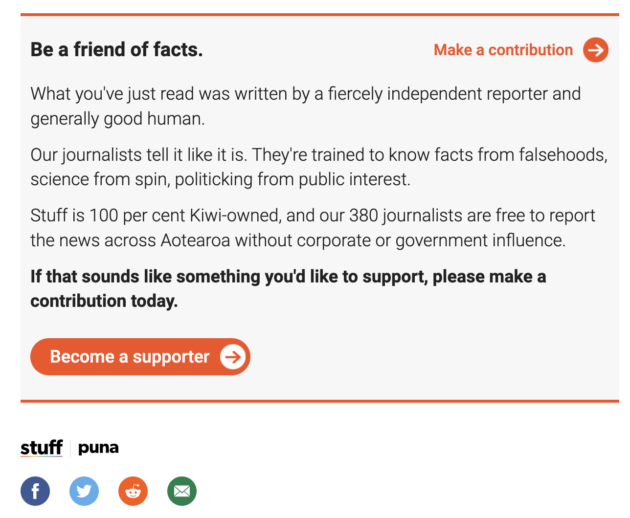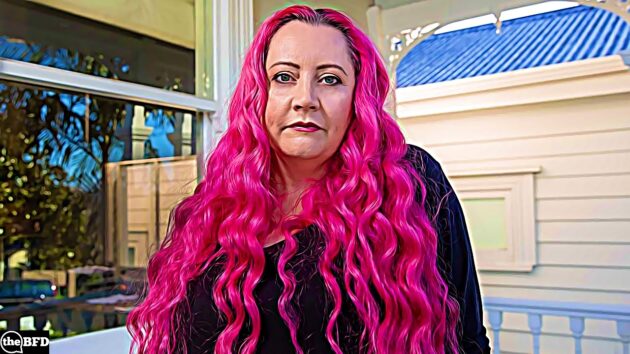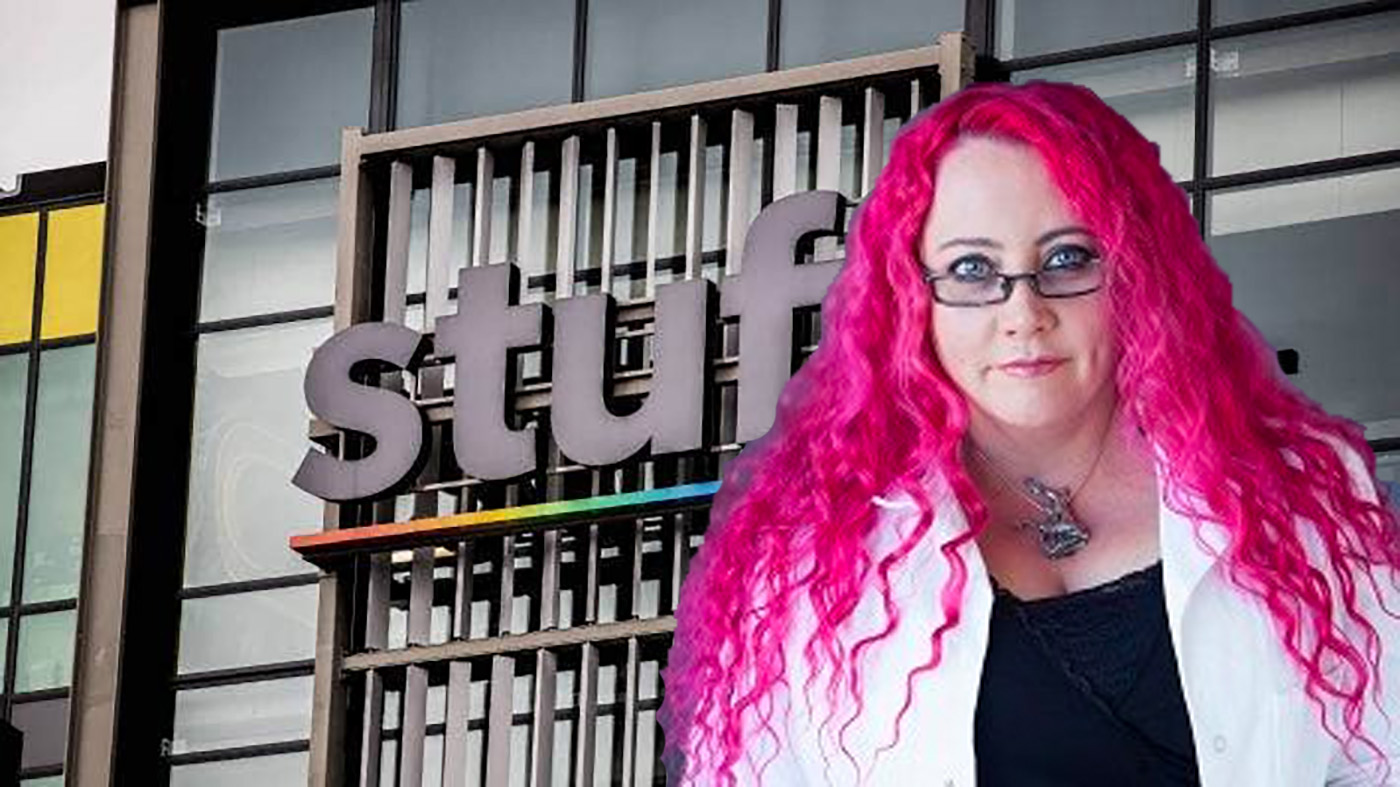Overview:
Stuff and Siouxsie Wiles smeared and damaged the six surviving letter writers by portraying them as intolerant bullies but wait...there's more.
Stuff have been bombarding readers with articles about how wonderful they are at halting the spread of misinformation. They attach statements like this to the bottom of articles:

Except that the Media Council has just busted them twice for their dishonest spreading of misinformation.

The first case was for an article written by Siouxsie Wiles that attacked other academics and basically just lied. She claimed that the seven signatories to the now infamous Listener letter had sent lawyer’s letters to junior colleagues, specifically:
“The reason I got involved is because those professors and fellows have influence and power over people’s careers. Astonishingly, some are now intimidating junior colleagues with lawyer’s letters.”
Media Council finding 2311
The astonishing part is that this claim was a lie. The Council specifically noted:
11. The complainants complained about the statement “Astonishingly, some are now intimidating junior colleagues with lawyer’s letters”. They see it as a “serious and completely inaccurate” allegation which has harmed university relationships and “seriously damaged our reputations”. The Council agrees that the statement was inaccurate. It appears plain that none of the named Professors were involved in intimidating junior colleagues with lawyer’s letters.
12. It is also of the view that this is a most serious allegation to make, striking at the heart of academic freedom by asserting that the Professors were trying to stifle opposing views using lawyers’ threats. It required immediate public correction.
Media Council finding 2311
But they dragged their feet correcting it, leaving it unaltered for weeks. Stuff and Siouxsie Wiles smeared and damaged the six surviving letter writers by portraying them as intolerant bullies when in fact it is they who are the victims of intolerant bullies.
If Siouxsie Wiles was so willing to lie about the academics threatening lawyers and to smear them so egregiously, it makes you wonder what else has Siouxsie Wiles not been honest about?
But to add insult to injury the Media Council also smacked Stuff‘s chops for disguising advertising as health advice. The complainant outlines just how despicable Stuff‘s “article” was:
5. The complainant first wrote to the digital producer who wrote the story the morning after it appeared online, saying she had been misled.
6. Dr Reiche says the NZDSI is happy to provide expert comment on skin conditions and good healthcare and understood that was the purpose of the interview. Instead, her quotes were woven into an article that implied her endorsement of the products displayed in the story. “We believe it is abusive of our generosity of time, expertise, NZDSI integrity and good name”, she wrote, asking for an apology and donation to the NZDSI’s charity.
7. Responding to an initial reply from a Stuff editor, Dr Reiche said it only confirmed her concern that the information the NZDSI provided in good faith was used to “maximise commercial gain” and offer “false implicit endorsement of sundry commercial products”.
8. Dr Reiche concludes that Stuff’s lack of transparency around how her quotes would be used risks irrevocably damaging the goodwill of sources and trust of readers. She accuses Stuff of “subterfuge” and says the NZDSI now prefers to provide comment only to other media.
Media Council finding 3216
So Stuff, at the behest of their advertiser, The Warehouse, constructed a ‘story’ about sunscreen and sought the comments of a respected doctor, then merged the comments into the story that also provided handy links to The Warehouse’s products inserted in the story to give the impression the doctor had recommended them. Talk about cash for content.
But Stuff vigorously defended their sham article:
9. Stuff’s Editor in Chief, Verticals, Geoff Collett says the complaint is neither fair nor justified. Although he thanks Dr Reiche for raising her concerns, he stands by his decision to run the story in this form as one that “is well within our ethical standards”.
10. Collett says sunscreen articles are summer staples and this was a straightforward guide to help readers make an informed purchasing decision. Links were included allowing readers “to investigate purchase options for the products in question”.
11. He writes that the journalist approached experts because she “wanted to align specific sunscreens with the general advice received, which we consider is a reasonable and practical service to perform for readers in such lifestyle content”. She asked Dr Reiche about individual sunscreens to recommend and was directed to a Consumer NZ list that she relied on as her primary source for the suggested products. The exception to this was a particular sunscreen suggested by Melanoma NZ.
12. The story did not say the NZDSI endorsed the selected sunscreens; they were displayed with the text “one option to try”. If the Society had expressed any concerns about the quality of any of those products they would have removed them.
13. Given the journalist raised the question in the interview, the complainant was aware specific sunscreens would be mentioned in the article.
14. Collett believes the Society’s concern stems from the mistaken belief that Stuff directly profited from these product placements. It did not and the article was not “written to support a commercial arrangement with The Warehouse”.
15. He accepts responsibility for “an initial error” that misled the NZDSI. The story carried the footnote disclosure: “Our journalists produced this article in response to a commercial arrangement with The Warehouse. Click here for more information on Stuff’s advertising-related content”. That statement was incorrect and replaced with: “Click to buy links are at Stuff’s editorial discretion, but this article includes one for our advertising partner The Warehouse”. Collett expected that clarification to satisfy the complainant.
16. He stresses that the complainant is wrong when she says the article was an effort to “maximise commercial gain”. These are not “affiliate links” where Stuff would get a commission from any sale. “There is no revenue opportunity for Stuff from including these links in the article. These links were added at the editor’s discretion”.
17. However, Collett adds that they were included at the request of Stuff’s advertising department. Its staff had asked the lifestyle editor to consider featuring links to products sold at The Warehouse in “a small number of articles” as a way to “indirectly support Stuff’s broader commercial relationship with the advertiser”. No money changed hands directly and it was only agreed to include The Warehouse products on the condition a disclosure was added.
18. Collett felt the request from Dr Reiche to donate money to the NZDSI’s research charity as a means of resolving the issue was “inappropriate”.
19. Stuff utterly denies any subterfuge. Collett says that, to the contrary, the confusion came because Stuff was trying to transparently disclose “a comparatively minor commercial connection”. He believes Stuff has acted in accordance with the Council’s Principle 10, Conflicts of Interest.
Media Council finding 3216
Not surprisingly the Media Council has busted them for that flannel. Of course, there was a commercial consideration for including the links. Stuff‘s response is dancing on the head of a pin, or actually contradictory.
42. The complaint is not upheld under Principle 10, although as discussed we hope this ruling will prompt debate around media’s need to be independent and free of external obligations, including commercial ones.
43. The complaint is upheld under Principle 1.
44. The article was unfair to Dr Reiche and NZDSI and misleading to readers who would have thought the products suggested were endorsed by NZDSI.
Media Council finding 3216
So, in the space of two findings, Stuff‘s self-proclaimed upstanding ethical standards were weighed in the balance and found wanting. Far from being an honest reporter of facts, they are in fact shills to the advertisers and spreaders of misinformation, which is hugely ironic given that on the same day these findings were released they were spouting on about the dangers of disinformation, yet again.

Both Stuff and Siouxsie Wiles have been found to be big fat liars and big fat hypocrites to boot.
Please share this article so others can discover The BFD.

